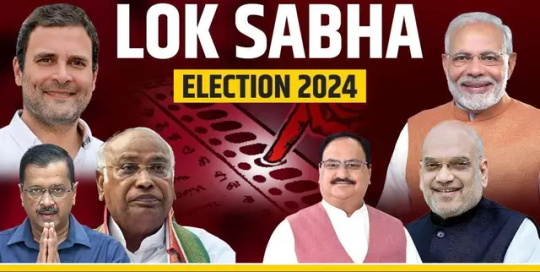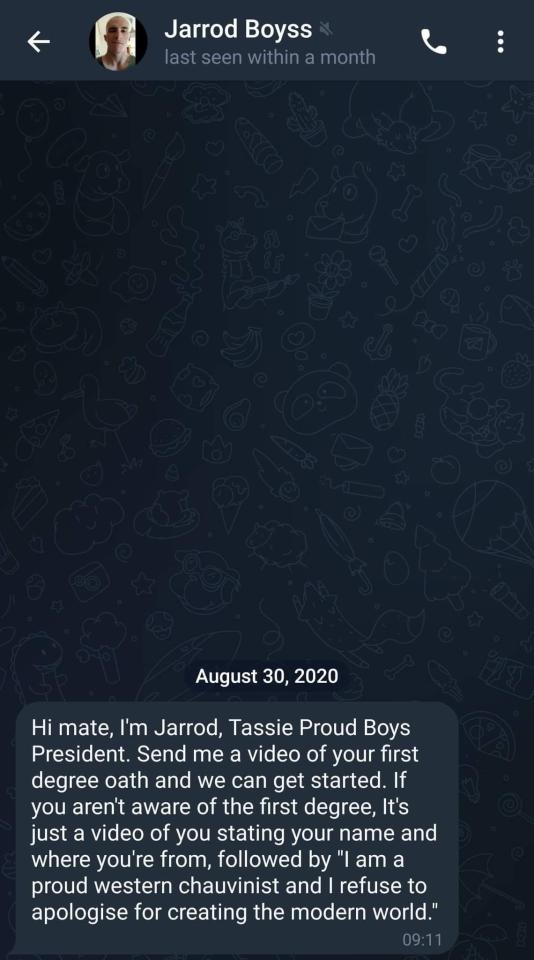#Indian voters
Text

#racism#race#indian#native american#slaves#black#blm movement#black lives matter#crt#critical race theory#blacklivesmatter#black tumblr#black beauty#black votes matter#black votes#black voters#black voters matter#mexican#history#cultures#historical#history lesson#us history#american history#vote blue#vote democrat#please vote#voting#election 2024#get out the vote
59 notes
·
View notes
Text
Rep. Ted Lieu (D-CA) reminds voters and the press that Convicted Felon Donald Trump is “all over” the Epstein files.
#Rep. Ted Lieu (D-CA) reminds voters and the press that Convicted Felon Donald Trump is “all over” the Epstein files.#videos#video#jeffrey epstein#epstein island#epstein files#donald trump#ghislaine maxwell#bill clinton#joe biden#anti donald trump#fuck trump#traitor trump#trump#blue maga#maga morons#fuck maga#magats#maga cult#maga#crooked donald#usa is a terrorist state#usa news#usa politics#usa#american indian#american#america#amerikkka#amerika
29 notes
·
View notes
Text
Do I even want to know Gujarat poll results 💀💀💀
#as a Gujarati I feel like I owe an apology to the rest of India im sooooo sorry y’all have to deal with us motherfuckers#I knew we were cooked when my gujju ass locality had the highest voter turnout in Mumbai#desi tag#indian elections#desi#anti BJP#BJP
42 notes
·
View notes
Text
technically Owaisi should be permanently suspended from the parliament and his MP candidature revoked for what he said in his speech but BJP doesn't have the spine to walk the talk
#for those who dont know#he ended his speech with 'jai bheem jai meem jai telangana jai palestine'#indian politics#he shouldnt have been allowed to contest at all after ECI found out thousands of fake voter id in his constituency
7 notes
·
View notes
Text
So what you're telling me is that the man who was one of the key instrumental players in fucking up our economy to the point its at now is being backed.....to fix our economy
????
Did I just have a stroke or have these people actually lost their minds I-
#brain dead#also are they aware that half their voters are racists and wont vote for an indian in an election#(if he makes it that far)#rishi sunak#uk politics
4 notes
·
View notes
Text
Kirk Kirkpatrick on the American 2024 Election
Author(s): Scott Douglas Jacobsen
Publication (Outlet/Website): The Good Men Project
Publication Date (yyyy/mm/dd): 2024/08/14
Kirk Kirkpatrick is the CEO of international telecommunications firm MDS America Inc.
Scott Douglas Jacobsen: Today, we are here with Kirk Kirkpatrick. We will be talking about the current political landscape in the United States. You had the debate between Biden and…
#Biden stepping down for Harris#conservative trends among Indian voters#impact of Kamala Harris on Indian-American relations#influence of religion on U.S. voting#Kamala Harris presidential candidacy impact#net wealth distribution and U.S. politics#political violence in U.S. elections#Project 2025 political implications#psychological motivations of political violence#racial and ethnic dynamics in U.S. elections#rise of populism in global politics#Trump portrayal as a messiah
0 notes
Text
Elections 2024 Insight
Your views matter! Share your thoughts on the Lok Sabha Elections 2024 article.
Dissecting the Lok Sabha Elections 2024 Outcomes: An In-Depth Exploration
In the ever-shifting landscape of Indian politics, the Lok Sabha elections 2024 stand as a testament to our robust democracy. Delving into the election outcomes, it’s crucial to grasp the undercurrents sculpting the political discourse. This piece marks the fourth entry in our series, “Lok Sabha Election Result Analysis…

View On WordPress
#BJP#Congress#election results#Electoral Strategies#Indian Politics#Lok Sabha Elections 2024#political analysis#Political Campaigns#Voter Trends
0 notes
Text
youtube
#Indian Elections#Politics in India#Indian Economy#Indian Society#Media Bias#Voter Education#Foreign Policy#Trade Deficit#Brain Drain#English Language in India#Indian Democracy#Over-taxation#Petrol Prices#Rupee Value#empire diaries#ratnasradar#lok sabha election#election#election 2024#joe biden#politics#history#Youtube
0 notes
Text
"Political Pundits Predict: Lok Sabha Elections 2024 in India Set to Shake NDA's Majority"
As the anticipation builds for the upcoming Lok Sabha Elections in 2024, political analysts and pundits are scrutinizing every indicator, from public sentiment to the betting trends in places like Phalodi Satta Bazar. While the outcome remains uncertain, one prevailing sentiment emerges: the National Democratic Alliance (NDA) might face challenges in securing a resounding victory.
Contrary to…

View On WordPress
#betting trends#coalition politics#coalition-building#electoral dynamics#electoral speculation#Indian democracy#Indian politics#Lok Sabha Elections#Lok Sabha Elections 2024#NDA#NDA majority#opposition alliances#Phalodi Satta Bazar#political analysis#political dynamics#political speculation#regional parties#voter preferences#voter sentiment
0 notes
Text
#India elections#monumental India elections#Narendra Modi#third term#India’s political landscape#opposition alliance#BJP winning run#Vivek Mishra#India’s general elections#April 19#968 million eligible voters#largest democratic vote#logistical challenges#robust electoral mechanism#Lok Sabha#Bharatiya Janata Party#Indian National Congress#President of India#Anglo-Indians#Rahul Gandhi#Sonia Gandhi#Nehru-Gandhi political dynasty#electronic voting machines#voter turnout#polling stations#election expenditure#public opinion polls#uniform civil code#minority groups#exit polls
0 notes
Text
Indian Hindu group’s strategy to win over Muslim voters revealed

A HINDU gathering firmly connected to Indian head of the state Narendra Modi is introducing Muslims faithful to it in administrative roles at Muslim colleges as a component of a push to earn Muslim votes in front of public races, authorities said.
The Rashtriya Swayamsevak Sangh (RSS), which Modi participated in his childhood and which is the accepted parent of his ideological group, is attempting to charm Muslim citizens from Congress and different gatherings that they have generally upheld.
Modi's Bharatiya Janata Party (BJP), which won around nine percent of the Muslim vote in the two general elections, is focusing up to 17 percent in the races due by May. Assessments of public sentiment recommend the BJP, which has no Muslim individuals in parliament, will effortlessly win an uncommon third consecutive term.
"It is for sure that the BJP will win a much greater level of Muslim votes than the last time," said senior RSS pioneer Indresh Kumar, patron of its Muslim wing, which said prevailing upon most of India's 200 million Muslims is attempting.
Modi denies strict segregation exists in India.
The RSS lobby to place Muslim partners in top college jobs, which has not recently been accounted for, marks another way to deal with working from inside the local area, authorities told Reuters. Notwithstanding its emphatically Hindu personality, the RSS additionally has divisions working with Christians, Sikhs and other minority gatherings.
Enrollment in the RSS's Muslim Rashtriya Manch, shaped in 2002 for discourse among Muslims and the RSS, has leaped to 1,000,000 from 10,000 preceding Modi took office 10 years prior, said representative Shahid Sayeed.
India has in excess of twelve colleges taking care of Muslims, laid out to help a local area that slacks Hindus instructively, monetarily and socially.
Rashtriya Swayamsevak Sangh activists
The public authority has long seen a few colleges, particularly in Muslim-larger part Kashmir, where India has battled a revolt for quite a long time, as hotbeds of Islamic activism and even safe-havens for individuals threatening to India's inclinations.
However, presently the RSS's Kumar suggests the vast majority of the bad habit chancellors, or heads, of Muslim colleges, and the public authority generally acknowledges his proposals, Sayeed said.
Previously, these schools were "antiIndia", slighting the Indian banner and not praising occasions like Freedom Day and Republic Day, yet that is changing, Kumar told Reuters.
"The organization among instructors is assembling quite well, understudies are coming ready," he said. "Alongside studies, a feeling of adoration for the country in these colleges is developing."
The RSS Muslim wing, he expressed, tries to make a "efficient framework to contact the young and the educators" in Muslim-larger part colleges like Aligarh Muslim College, the College of Kashmir, Khwaja Moinuddin Chishti Language College, Jamia Millia Islamia, Jamia Hamdard and Maulana Azad Public Urdu College.
The bad habit chancellor of the College of Kashmir raised the Indian banner on Freedom Day on August 15, after which the public song of devotion was sung, a video transferred by the college shows. That was not generally the situation previously, said a senior teacher.
"Playing the public song of praise is obligatory for each capability currently," said the teacher, who asked not to be named in light of the responsiveness of the issue. "It is likewise guaranteed that every one of the understudies and staff stand up as a sign of regard."
The colleges didn't answer demands for input.
At Aligarh Muslim College, India's greatest Muslim college with almost 25,000 understudies, the bad habit chancellor from 2017 to 2023 was Tariq Mansoor, who surrendered in April last year to turn into a BJP state official and was named a party public VP three months after the fact.
Numerous individuals from personnel near the BJP or the RSS have joined the college as of late, said Syed Ali Nadeem Rezavi, a teacher of middle age Indian history. "My bad habit chancellor realizes that he can go on as a bad habit chancellor provided that he pays regard to Modiji."
Mansoor declined to remark. Modi's office and the Service of Schooling didn't answer demands for input.
BJP representative Shazia Ilmi said there was the same old thing in the public authority picking its own chosen people to head organizations. "That's what each administration does," Ilmi repeated. "Likewise, patriotism is something to be thankful for and Muslims are content with patriotism."
Be that as it may, Roop Rekha Verma, a previous vice chancellor of the College of Lucknow, said: "Assuming that philosophy is given need over capabilities and heaps of individuals are set through the secondary passage holding a similar philosophy, then it is exceptionally harmful to the scholarly climate."
The resistance Congress, which represented India for the vast majority of its post-freedom history, accepts everybody has a privilege to look for votes from changed gatherings, yet forcing any belief system, said representative Pawan Khera is off-base.
"There ought to be a decent blend of all great philosophies in instructive establishments," Khera further said. "For what reason are you forcing one philosophy on schooling foundations?" (Reuters)
#breaking news#international news#news#srilanka#srilanka news#srilanka weekly#world news#Indian Hindu group’s strategy to win over Muslim voters revealed
0 notes
Text
Rising Youth Rising India: The Role of Youth in Shaping India’s Future
Explore the pivotal role of youth in shaping India's future with 'Rising Youth Rising India.' Empowering insights on the transformative impact of youth engagement.
#political strategist in india#Youth political engagement#youth politics#Rising Youth Rising India#Youth and politics#Youth in Politics#Indian youth voter turnout
0 notes
Text

Take that, Democrat voters!









#democrats#democrat#democrap#voters#fascism#germany is complicit#complicit in genocide#complicit#ausgov#politas#auspol#tasgov#taspol#australia#fuck neoliberals#neoliberal capitalism#anthony albanese#albanese government#usa news#usa politics#usa is a terrorist state#usa#american indian#american#america#electoral college#electoralism#electoral commission#electoral politics#electoral bonds
4 notes
·
View notes
Text
Indian Prime Minister Narendra Modi is, by some measures, the most popular leader in the world. Prior to the 2024 election, his Bharatiya Janata Party (BJP) held an outright majority in the Lok Sabha (India’s Parliament) — one that was widely projected to grow after the vote count. The party regularly boasted that it would win 400 Lok Sabha seats, easily enough to amend India’s constitution along the party's preferred Hindu nationalist lines.
But when the results were announced on Tuesday, the BJP held just 240 seats. They not only underperformed expectations, they actually lost their parliamentary majority. While Modi will remain prime minister, he will do so at the helm of a coalition government — meaning that he will depend on other parties to stay in office, making it harder to continue his ongoing assault on Indian democracy.
So what happened? Why did Indian voters deal a devastating blow to a prime minister who, by all measures, they mostly seem to like?
India is a massive country — the most populous in the world — and one of the most diverse, making its internal politics exceedingly complicated. A definitive assessment of the election would require granular data on voter breakdown across caste, class, linguistic, religious, age, and gender divides. At present, those numbers don’t exist in sufficient detail.
But after looking at the information that is available and speaking with several leading experts on Indian politics, there are at least three conclusions that I’m comfortable drawing.
First, voters punished Modi for putting his Hindu nationalist agenda ahead of fixing India’s unequal economy. Second, Indian voters had some real concerns about the decline of liberal democracy under BJP rule. Third, the opposition parties waged a smart campaign that took advantage of Modi’s vulnerabilities on the economy and democracy.
Understanding these factors isn’t just important for Indians. The country’s election has some universal lessons for how to beat a would-be authoritarian — ones that Americans especially might want to heed heading into its election in November.
-via Vox, June 7, 2024. Article continues below.
A new (and unequal) economy
Modi’s biggest and most surprising losses came in India’s two most populous states: Uttar Pradesh in the north and Maharashtra in the west. Both states had previously been BJP strongholds — places where the party’s core tactic of pitting the Hindu majority against the Muslim minority had seemingly cemented Hindu support for Modi and his allies.
One prominent Indian analyst, Yogendra Yadav, saw the cracks in advance. Swimming against the tide of Indian media, he correctly predicted that the BJP would fall short of a governing majority.
Traveling through the country, but especially rural Uttar Pradesh, he prophesied “the return of normal politics”: that Indian voters were no longer held spellbound by Modi’s charismatic nationalist appeals and were instead starting to worry about the way politics was affecting their lives.
Yadav’s conclusions derived in no small part from hearing voters’ concerns about the economy. The issue wasn’t GDP growth — India’s is the fastest-growing economy in the world — but rather the distribution of growth’s fruits. While some of Modi’s top allies struck it rich, many ordinary Indians suffered. Nearly half of all Indians between 20 and 24 are unemployed; Indian farmers have repeatedly protested Modi policies that they felt hurt their livelihoods.
“Everyone was talking about price rise, unemployment, the state of public services, the plight of farmers, [and] the struggles of labor,” Yadav wrote...
“We know for sure that Modi’s strongman image and brassy self-confidence were not as popular with voters as the BJP assumed,” says Sadanand Dhume, a senior fellow at the American Enterprise Institute who studies India.
The lesson here isn’t that the pocketbook concerns trump identity-based appeals everywhere; recent evidence in wealthier democracies suggests the opposite is true. Rather, it’s that even entrenched reputations of populist leaders are not unshakeable. When they make errors, even some time ago, it’s possible to get voters to remember these mistakes and prioritize them over whatever culture war the populist is peddling at the moment.
Liberalism strikes back
The Indian constitution is a liberal document: It guarantees equality of all citizens and enshrines measures designed to enshrine said equality into law. The signature goal of Modi’s time in power has been to rip this liberal edifice down and replace it with a Hindu nationalist model that pushes non-Hindus to the social margins. In pursuit of this agenda, the BJP has concentrated power in Modi’s hands and undermined key pillars of Indian democracy (like a free press and independent judiciary).
Prior to the election, there was a sense that Indian voters either didn’t much care about the assault on liberal democracy or mostly agreed with it. But the BJP’s surprising underperformance suggests otherwise.
The Hindu, a leading Indian newspaper, published an essential post-election data analysis breaking down what we know about the results. One of the more striking findings is that the opposition parties surged in parliamentary seats reserved for members of “scheduled castes” — the legal term for Dalits, the lowest caste grouping in the Hindu hierarchy.
Caste has long been an essential cleavage in Indian politics, with Dalits typically favoring the left-wing Congress party over the BJP (long seen as an upper-caste party). Under Modi, the BJP had seemingly tamped down on the salience of class by elevating all Hindus — including Dalits — over Muslims. Yet now it’s looking like Dalits were flocking back to Congress and its allies. Why?
According to experts, Dalit voters feared the consequences of a BJP landslide. If Modi’s party achieved its 400-seat target, they’d have more than enough votes to amend India’s constitution. Since the constitution contains several protections designed to promote Dalit equality — including a first-in-the-world affirmative action system — that seemed like a serious threat to the community. It seems, at least based on preliminary data, that they voted accordingly.
The Dalit vote is but one example of the ways in which Modi’s brazen willingness to assail Indian institutions likely alienated voters.
Uttar Pradesh (UP), India’s largest and most electorally important state, was the site of a major BJP anti-Muslim campaign. It unofficially kicked off its campaign in the UP city of Ayodhya earlier this year, during a ceremony celebrating one of Modi’s crowning achievements: the construction of a Hindu temple on the site of a former mosque that had been torn down by Hindu nationalists in 1992.
Yet not only did the BJP lose UP, it specifically lost the constituency — the city of Faizabad — in which the Ayodhya temple is located. It’s as direct an electoral rebuke to BJP ideology as one can imagine.
In Maharashtra, the second largest state, the BJP made a tactical alliance with a local politician, Ajit Pawar, facing serious corruption charges. Voters seemingly punished Modi’s party for turning a blind eye to Pawar’s offenses against the public trust. Across the country, Muslim voters turned out for the opposition to defend their rights against Modi’s attacks.
The global lesson here is clear: Even popular authoritarians can overreach.
By turning “400 seats” into a campaign slogan, an all-but-open signal that he intended to remake the Indian state in his illiberal image, Modi practically rang an alarm bell for constituencies worried about the consequences. So they turned out to stop him en masse.
The BJP’s electoral underperformance is, in no small part, the direct result of their leader’s zealotry going too far.
Return of the Gandhis?
Of course, Modi’s mistakes might not have mattered had his rivals failed to capitalize. The Indian opposition, however, was far more effective than most observers anticipated.
Perhaps most importantly, the many opposition parties coordinated with each other. Forming a united bloc called INDIA (Indian National Developmental Inclusive Alliance), they worked to make sure they weren’t stealing votes from each other in critical constituencies, positioning INDIA coalition candidates to win straight fights against BJP rivals.
The leading party in the opposition bloc — Congress — was also more put together than people thought. Its most prominent leader, Rahul Gandhi, was widely dismissed as a dilettante nepo baby: a pale imitation of his father Rajiv and grandmother Indira, both former Congress prime ministers. Now his critics are rethinking things.
“I owe Rahul Gandhi an apology because I seriously underestimated him,” says Manjari Miller, a senior fellow at the Council on Foreign Relations.
Miller singled out Gandhi’s yatras (marches) across India as a particularly canny tactic. These physically grueling voyages across the length and breadth of India showed that he wasn’t just a privileged son of Indian political royalty, but a politician willing to take risks and meet ordinary Indians where they were. During the yatras, he would meet directly with voters from marginalized groups and rail against Modi’s politics of hate.
“The persona he’s developed — as somebody kind, caring, inclusive, [and] resolute in the face of bullying — has really worked and captured the imagination of younger India,” says Suryanarayan. “If you’ve spent any time on Instagram Reels, [you’ll see] an entire generation now waking up to Rahul Gandhi’s very appealing videos.”
This, too, has a lesson for the rest of the world: Tactical innovation from the opposition matters even in an unfair electoral context.
There is no doubt that, in the past 10 years, the BJP stacked the political deck against its opponents. They consolidated control over large chunks of the national media, changed campaign finance law to favor themselves, suborned the famously independent Indian Electoral Commission, and even intimidated the Supreme Court into letting them get away with it.
The opposition, though, managed to find ways to compete even under unfair circumstances. Strategic coordination between them helped consolidate resources and ameliorate the BJP cash advantage. Direct voter outreach like the yatra helped circumvent BJP dominance in the national media.
To be clear, the opposition still did not win a majority. Modi will have a third term in office, likely thanks in large part to the ways he rigged the system in his favor.
Yet there is no doubt that the opposition deserves to celebrate. Modi’s power has been constrained and the myth of his invincibility wounded, perhaps mortally. Indian voters, like those in Brazil and Poland before them, have dealt a major blow to their homegrown authoritarian faction.
And that is something worth celebrating.
-via Vox, June 7, 2024.
#india#narendra modi#pm modi#modi#bjp#lok sabha elections#rahul gandhi#democracy#2024 elections#authoritarianism#anti authoritarian#good news#hope
721 notes
·
View notes
Text
instagram
Why is this a big deal? Because the Democrats made it a big deal back in 2020, do you remember?
Blm. Riots. Looting. And an enormous Focus on blacks. Almost like Democrats wanted to elevate blacks to the Moon.
The reality is since the late 1960s the United States through affirmative action programs and other policy have assisted blacks with jobs, education, government benefits and the like.
So now, if Harris is black, and not Indian like she is, that is supposed to help her with voters. We think black voters see right through that. We think black voters see right through that and I probably offended.
What do you think?
#Harris#Biden#ob#Democrats#Obama#trump#trump 2024#president trump#ivanka#repost#america first#americans first#america#donald trump#democrats#poll#Instagram
167 notes
·
View notes
Text
Kirk Kirkpatrick on the American 2024 Election
Publisher: In-Sight Publishing
Publisher Founding: March 1, 2014
Web Domain: http://www.in-sightpublishing.com
Location: Fort Langley, Township of Langley, British Columbia, Canada
Journal: In-Sight: Independent Interview-Based Journal
Journal Founding: August 2, 2012
Frequency: Three (3) Times Per Year
Review Status: Non-Peer-Reviewed
Access: Electronic/Digital & Open…
#Biden stepping down for Harris#Biden&039;s historical decision#Billy Joel song#Black and Indian voter influence#Conservative Indian-American voters#Credibility issues of J.D. Vance#Kamala Harris&039; legal background#Kamala Harris&039; presidential candidacy#Lack of significant political violence#Major issues like abortion
0 notes